Sakiko Nagai is best known as a vinyl DJ and theatre sound designer. After discovering a love for disco, rare groove, city pop and hip hop, Sakiko began spinning her collection of records for patrons of night clubs in Tokyo, Japan before making her mark here in Toronto, Canada.
Are you based here in Toronto?
Yes, I am. I was actually born in Toronto, but then grew up in Japan. My family decided to move to Japan when I was nine months old. Of course, I don’t remember anything, but I started speaking Japanese, so English is my second language.
So when did you return back to Toronto?
In 2015. So I’ve been in Toronto for seven years now.
Did you think about moving to anywhere else in Canada, or did you have your sights set on Toronto?
I was pretty much set on Toronto, because at the time I was still in my early twenties, and I thought my parents would be happier if I was close to their friends who still live here.
Do you like living in Toronto, as compared to Japan?
I like this more relaxed, easy-going, and open-minded style of the city. I still do miss some parts of Japan, like the nightlife, the food, and my friends.
Have you been able to visit recently?
Actually, yes in March of this year, when they loosened the travel restrictions for the first time. I did hear that some other people weren’t able to go back to their home country for longer, so I guess I am on the luckier side.
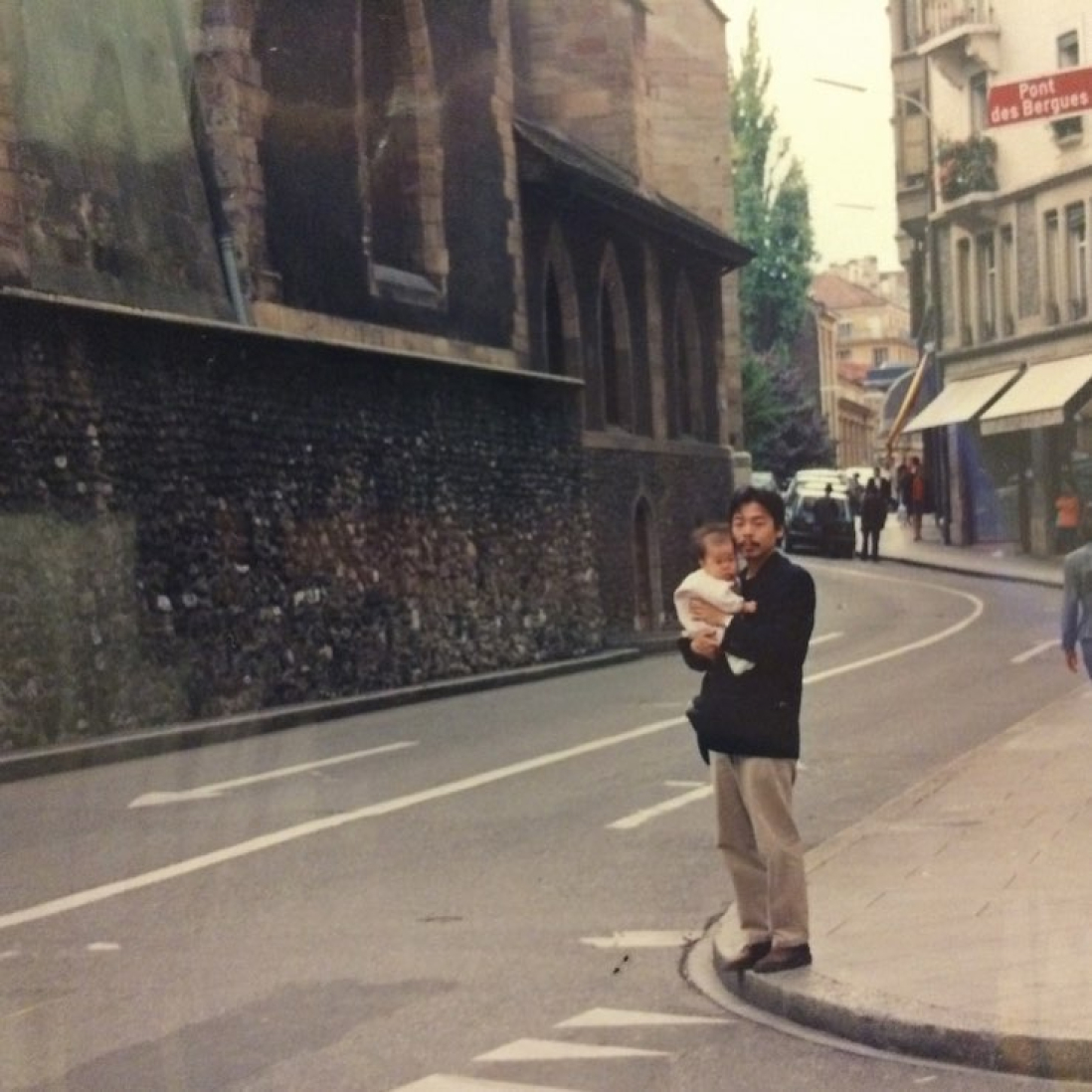
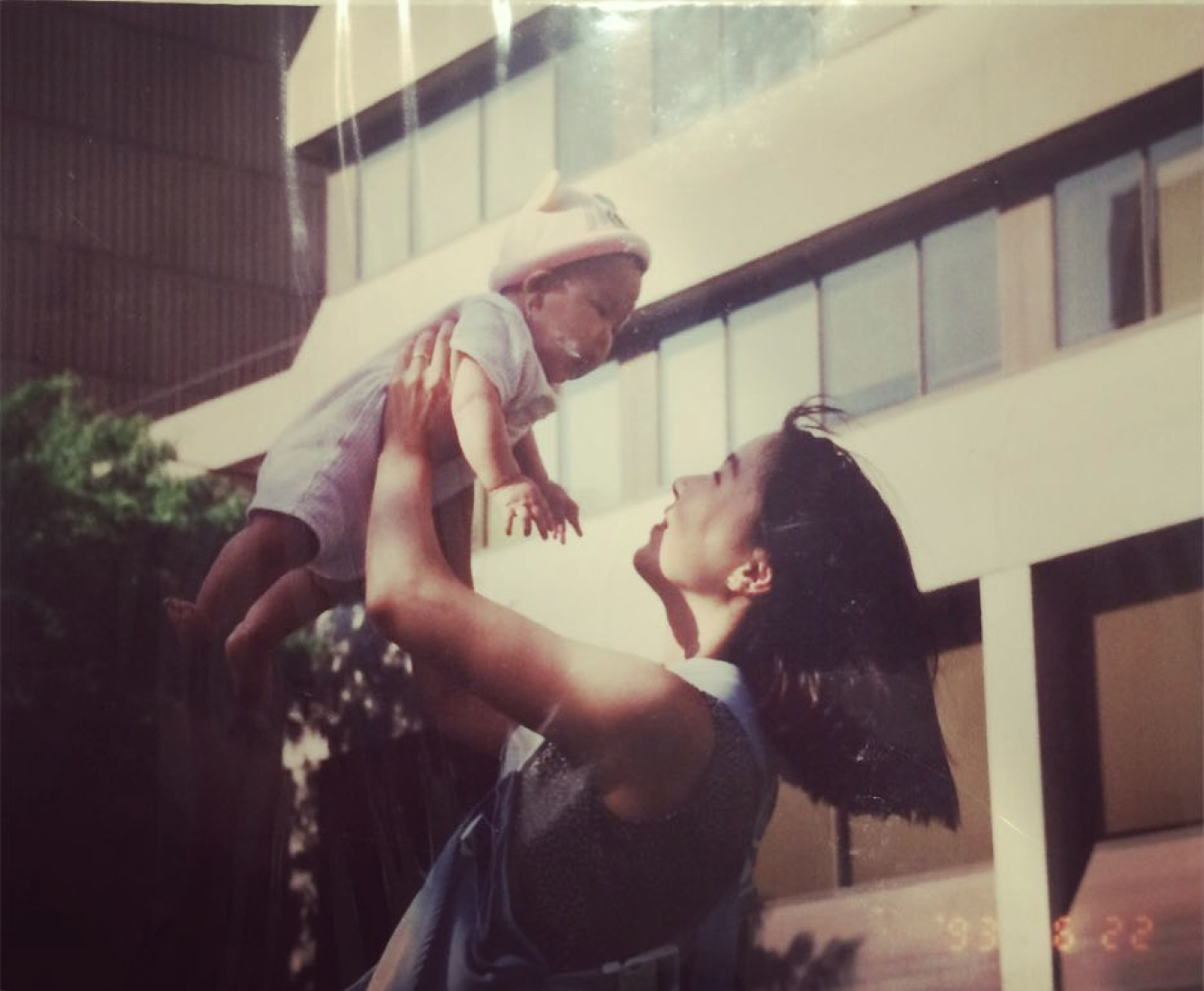
Is DJing your profession or a passion?
The thing is, until 2020 I didn’t have as many opportunities as I do now in 2022. So, it was more of something I did when I had time. It was not my main focus. I started DJing in Japan, in 2013 or 2014, one year before I left Japan. It was something I started as a hobby. But now, in 2022, since everything started opening up again, it has become the main part of my life. I still work a daytime job, but it’s more to fit my DJing schedule.
What was your inspiration to start DJing?
I did not start as a vinyl DJ. I was just a club-goer in Tokyo. I liked listening to music and making friends. In Tokyo, there are a lot of smaller underground bars/clubs venues. There, it’s so small that the people that are dancing are either DJs or producers. I was just there, a non-DJ, enjoying myself. Then, a friend of a friend came up to me and asked if I was a DJ. I said, not really, and he was like “want to become one?” And I was like “sure!” So, that’s how I became a DJ.
[Laughs]
Obviously, I was interested in DJing and so played with CDJs, or like the free DJ software on my laptop. I knew the logic behind it, but that’s how I became a DJ. A stranger asked me.
What were your initial DJ experiences? Were they radio shows, or in a club?
Mostly in a club in Tokyo called Organ Bar. It’s pretty legendary. It’s a small bar, and it’s not very clean looking, but the music there is top-tier. Actually, my first gig was a regular thing, like once a month. I started using CDJs, playing R&B and sometimes soul music, but that bar was more like OG DJs – not the youngest. The organizer of the bar was in their mid-30s, or maybe closer to 40s, so not the youngest scene, and they were all vinyl nerds. They didn’t push me into buying vinyls, but seeing them DJing on vinyl, having fun with it, and explaining how good it was, made me more interested. They’d be like “oh look at this, this is from year something-something and it’s original,” and I’d be like “oh, that sounds fun.” If I did play soul or funk, which I was interested in back then – and still am – some people would say it’s easier with vinyl, so I figured I might as well start doing it.
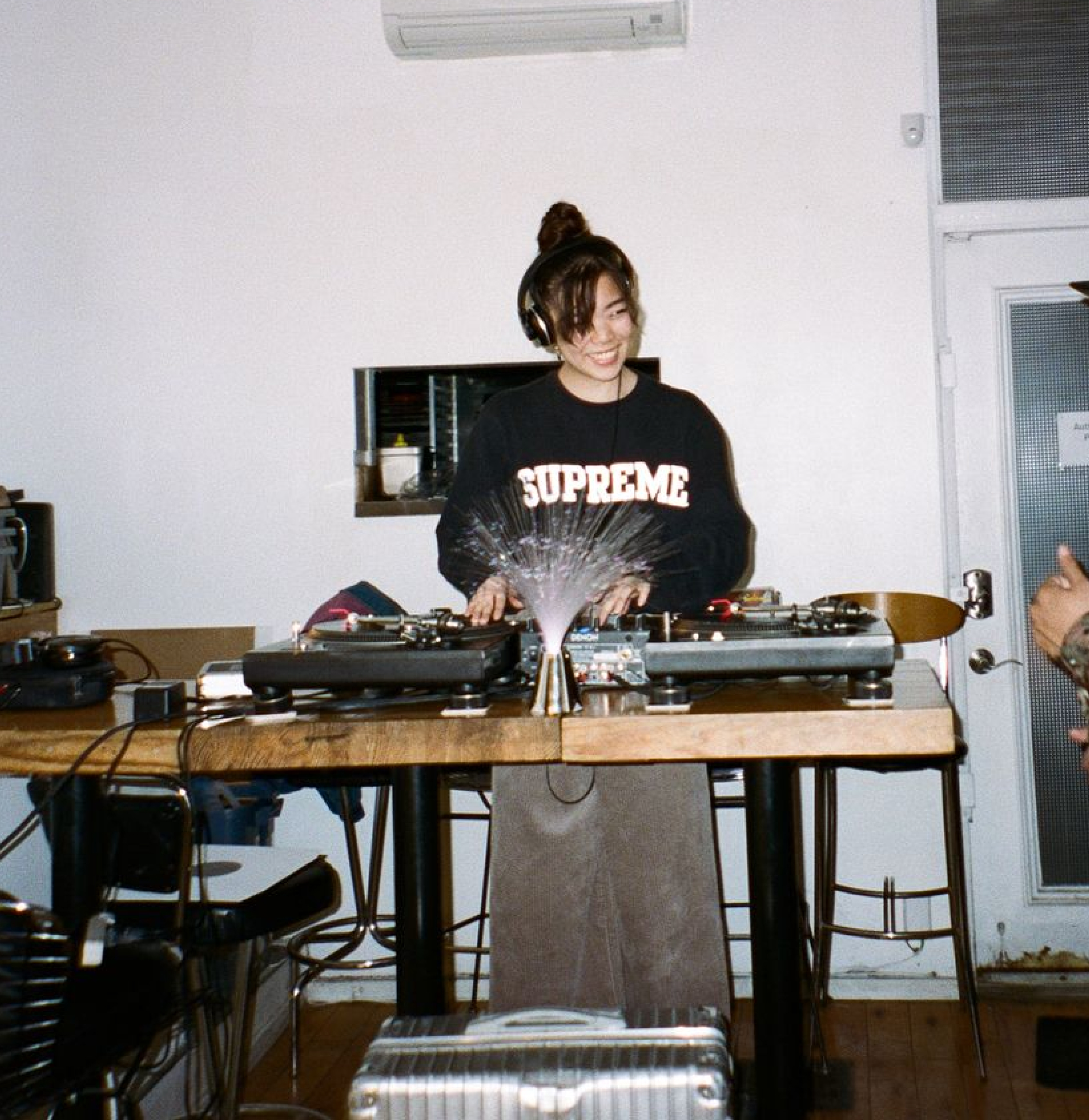
Did you notice early on, when switching to vinyl, that some of the music you wanted to play was harder to find?
Ya actually. I still played some R&B or newer hip-hop, but I switched to focus more on soul and funk that is fun on vinyl. The DJs around me played jazz – like actual jazz. I didn’t get into that. It’s very hard and very niche, and I respect them for that. But, with that influence, I got into faster BPM music, which led me to disco with a raw band sound. That’s still my base when I DJ.
Are the records you chose for the Work Redux ones that are obscure, or that people might not have heard before?
When I shop for records, I usually go more for feeling than a specific artist, or year. I like to go into record stores and listen for the feeling. I know a lot of people do otherwise, but I just go with the flow when I shop for records. Online, I find something that I’ve never heard of, and if the artwork is fun, or if the title of the song sounds interesting, I become interested in it. That leads me to have not so well known records. I do find it fun when I play something that people might not know.
When you’re mixing, do you manipulate the sound, by looping or fading for example?
Actually, I don’t usually use faders or filters. I'm still learning about that part, but I’m focused on making the mix smooth so that the manipulation is not my main focus. I think that might be my next step.
It might also require more equipment.
Also, it sounds better with certain music. I play more raw band music, which is better when you just let it be because they are doing a lot of things already.
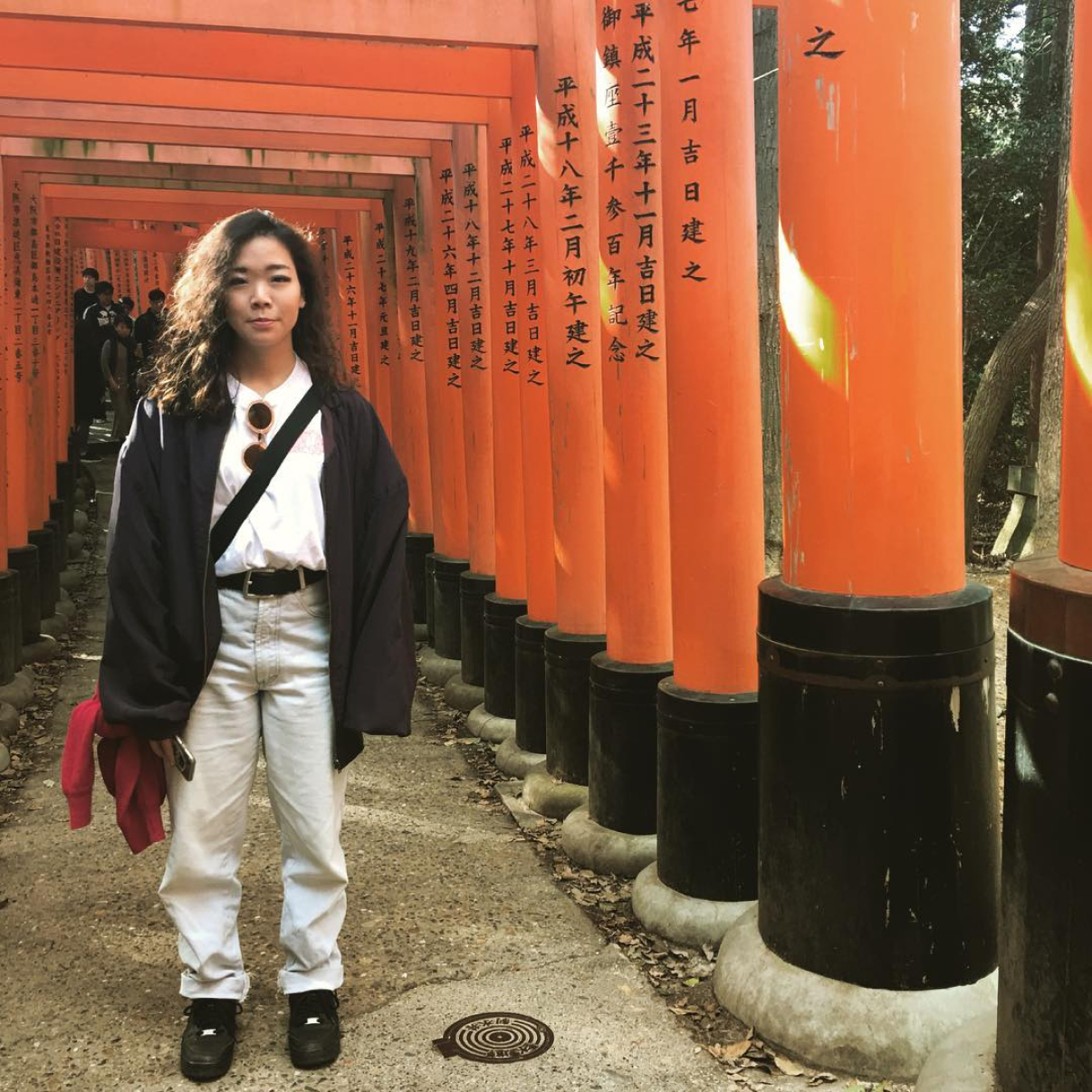
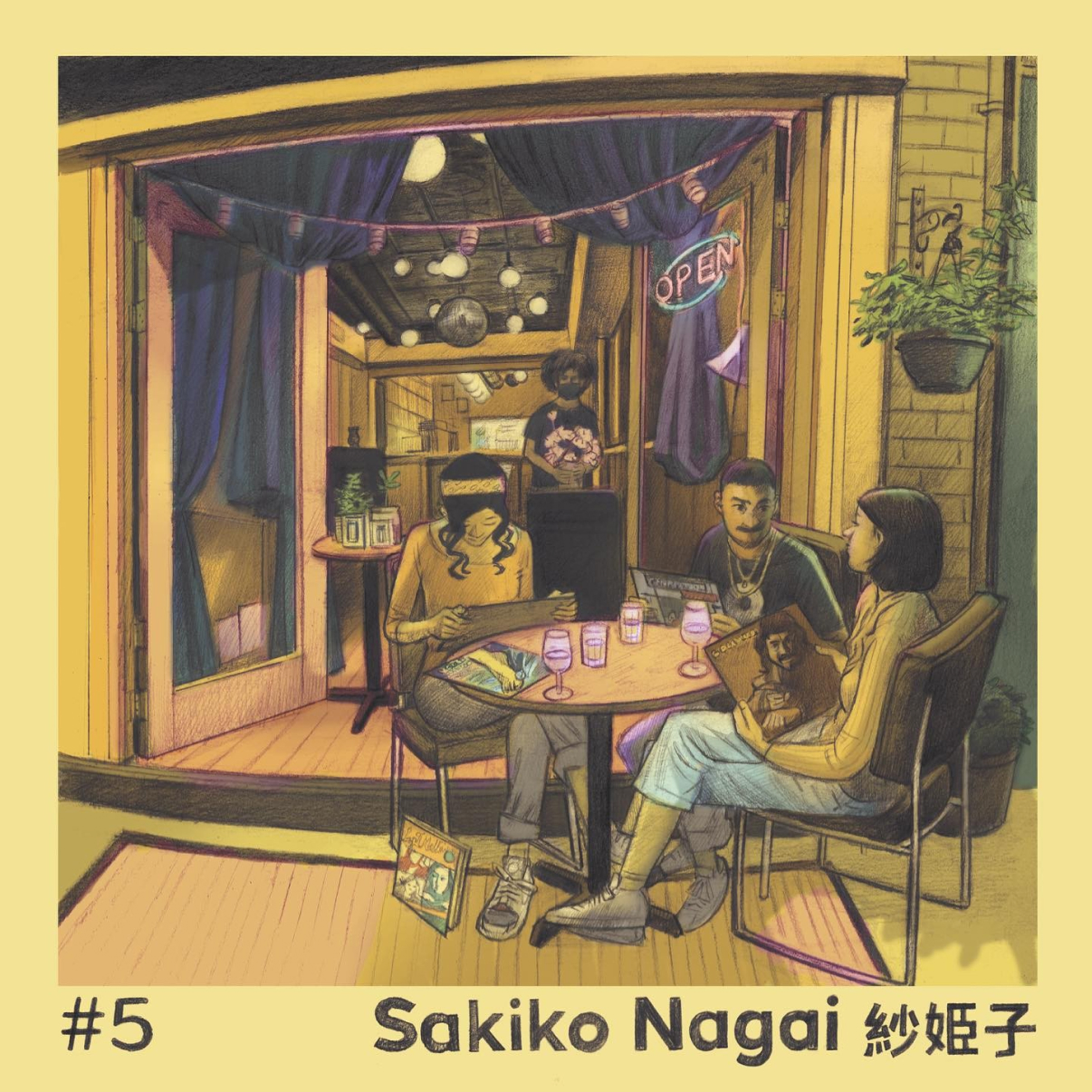
What do mean when you refer to “raw band”?
It’s a direct translation of what we say in Japanese. It’s just a band sound that’s not programmed by computers. I don’t know the English term for that.
I like raw band, it sounds like a new genre.
[Laughs] Ya, it's just the thing that’s not programmed or produced by computers. Just a recording of the band actually playing.
The Work Redux Mix was primarily funk or disco, but through a Japanese interpretation. Is that your favourite genre right now?
That’s actually my all-time favourite since I started DJing. It’s at the core of my music journey. Sometimes I go for house, sometimes disco, but the funkiness, the soulfulness, that 80s feeling, I never go too far from that. And for the Japanese part, I like intentionally adding Japanese music to my mixes when the time is right. It might be something that not a lot of people have heard of, but I know that it’s good. It’s also about embracing my culture. Sometimes people expect me to embrace my culture the way they expect me to, and a lot of the time, that’s not who I am. That’s not the way we live and feel. So, I’m trying to break that interpretation of how people see us and picture us. This is my culture and what I’m proud of.
Do you think DJing and music have a special ability to break expectations?
Yes, absolutely. Once, someone told me that I’m anti-Japanese because I don’t act the way they imagined. So, I made an all-Japanese mix consisting of newer Japanese R&B and rap and put it on Soundcloud. It’s such a big part of Tokyo's underground culture that influences the way people live, that influenced me and the way I live. I felt frustrated with that comment, so I made a mix as a reaction to that idea. I’m fighting against stereotypes in the coolest way and expressing and representing where I’m from.
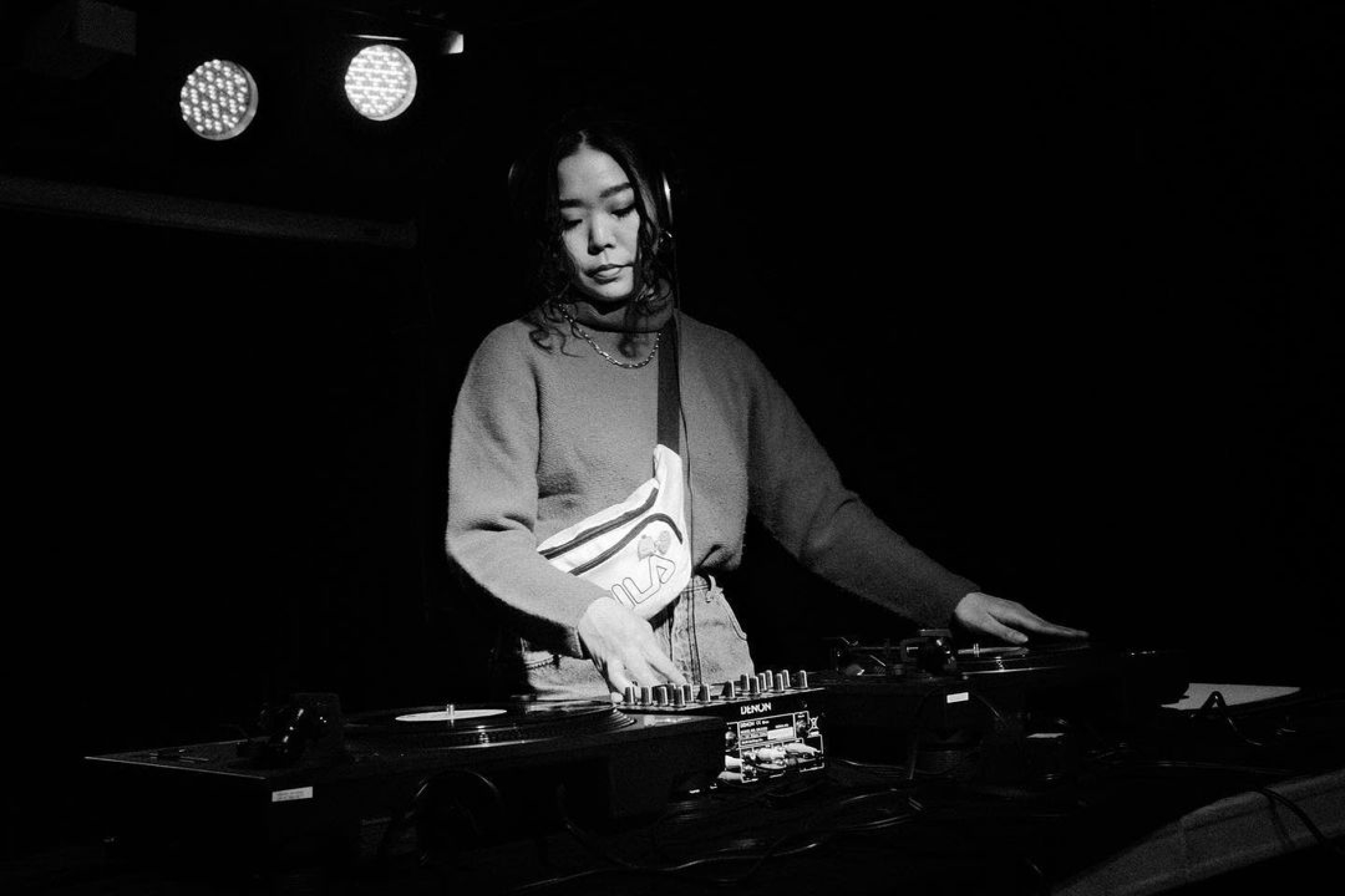
What are you currently working on in terms of music and DJing?
Right now, I started my residency at the Annex Hotel Cafe & Wine Bar. I’m there bi-weekly. I get all the time to myself, so I’m exploring what I can do to make that space nicer. I started using a non-vinyl way of DJing, using USBs, my laptop, and a controller, so I’m seeing where that leads me. I’m also expanding the type of music I play; stuff not on vinyl, and newer releases by up-and-coming artists. That’s kind of my new challenge.
So, what musically are you discovering, and where are you discovering it?
I think it’s leading me more towards house-ish music because it’s more suitable for CDJs and USBs. That equipment is made for that. I still like disco and boogie – that’s always a part of myself – but what I’m into right now are disco edits of early 2000s R&B, or disco edits of 80s soul/funk music. A lot of it is unofficial and not on vinyl, but I can purchase it online on Bandcamp. I think this will lead me more towards party rocking. And the gigs I’m getting are bigger crowds so that naturally leads me to music that is fun to dance to. I have my favourite labels and if I find something, even on Instagram, I'll look into it. I find it fun to discover newer musicians and I like to support them.
What are your favourite record stores in Toronto?
Cosmos Records. I started covering a shift there actually. Even when I was in Japan, people would tell me, you have to check out Cosmos Records and talk to Aki-san, he’ll take care of you. I go into the store and he tells me, “you should listen to this.” I like this way of discovering music; when someone who knows what I like tells me about something. It gives me a sense of community.
–
Work Redux is a collection of mixes made to be listened to while working. We work closely with local and international DJs to assemble thoughtful music that will carry members throughout their day and introduce them to new sounds. East Room is a shared workspace company providing design-forward office solutions, authentic programming and a diverse community to established companies and enterprising freelancers. We explore art, design, music, and entrepreneurship, visit our news & stories page to read more.